Water, Healing, and Travel – Vinegar Hill Magazine
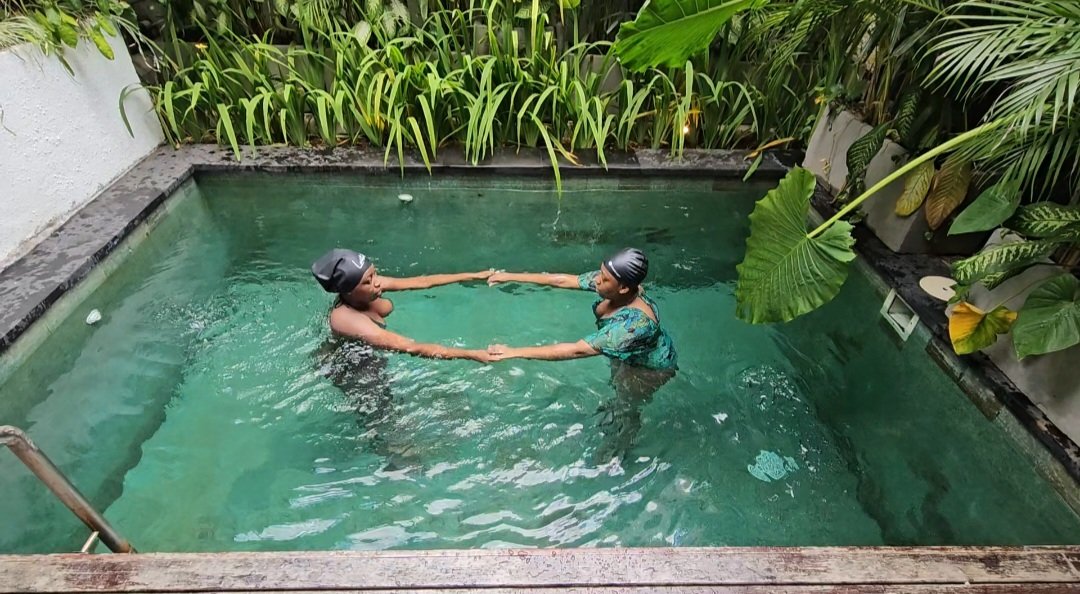

by Michaela Franklin
I still remember the bottom of the lake. I remember the soft sand. I remember trying to breathe in and feeling nothing but gravel in my lungs. It was 1988, Virginia Beach, USA. A fun trip to the lake ended up going horribly wrong when a freak whirlpool took myself, my nanny and her fiancé down to the bottom. My nanny rescued me, and I had to be resuscitated. By medical definition, I drowned that day.
Fast forward 30 years later, and 8,000 miles away. 6:00 am, Muscat, Oman. My mother had unexpectedly died the night before. I was in shock. My partner suggested we take a walk on the beach. As we strolled alongside the sand, the pebbles grounded me. The purple, orange, and red hues soaring in the sky looked like entry ramps into heaven’s gates. The sounds of waves hitting the shore slowly eased my confusion. A body of water in my primary years almost took me out, but it was a body of water that also fully restored me during a period of agony and darkness.
Zanzibar Island/Panje Profect Master Instructor In Service Training
The history of water is incredibly complex for Black people. Water was what essentially uprooted us and put us in chattel slavery for over four centuries. It was used to divide our families, to inflict violence and years of abhorrent, generational trauma. In the 1960’s during the Jim Crow period, acid was poured into swimming pools and pools were drained after our usage. We had fire hoses filled with pressure water that could literally take the skin off you, turned on us, just for daring to sit at the same lunch counter and classrooms as White people.
To say our relationship with water is complicated, is simplistic at best.
But for some reason, some of our happiest moments also involve water. Black folks love a yacht party. We love cruises, we love an overwater villa in the Maldives, Bahamas, Turks and Caicos. We love rafting and cliff diving in Jamaica. It’s almost like despite our history, we know deep down, that water means us no harm.
I moved to Bali a few months back, and one of the first things that stuck out to me was how many water activities Black people are involved in. I also noticed something profound: outside the U.S., Black people exude a different kind of bravery. It’s almost like the mental and emotional chokehold that the US has over us, disappears once we leave those borders. We are doing cannonball jumps into the deep end at pool parties, we are taking three-hour treks up curvy mountains to stand underneath the Tegenungan waterfall. We wake up at 4 am to detox and purify ourselves at the Tirtha Temple. We are snorkeling, scuba diving, and getting surf lessons.
Back home, there’s a running joke: Black pool parties where no one gets in the pool. A few years back, a particular image from one of Rick Ross’ annual pool parties went viral. The image showed hundreds of Black people on the deck, but only a handful in the water. We got a lot of kikis on twitter about it, but it’s not funny. The lack of water participation reflects the deep-seated fear and unease Black Americans often feel about water, a fear that’s as much cultural as it is personal.
What’s the about, really? I think to understand Black American’s deep and complex relationship with water would take months to explain, but I will try to summarize here. The fact is: we are woefully aware that the US is not a safe space. So many of us in the last ten years alone are making mass exodus from the States, seeking refuge abroad. Often noting that the quality of life, (i.e. less racism and being able to simply exist and be Black), does not exist on American soil. It’s been said that the American Dream is not in America, but overseas.

In June 1964, James Brock dumped acid into the water at the Monson Motor Lodge in St. Augustine, Fla. He was trying to disrupt swimmers who were protesting the hotel’s whites-only policy. Bettmann/Corbis
We often forget that our ancestors found freedom in water. One of the penultimate forms of rebellion on the slave ships was to jump off the boat’s edges. We jumped, choosing to forego a life of physical, mental, and emotional bondage. We instead submitted to let the water fill our lungs and make an eternal home in the soft sands at the bottom. In Christianity, we are baptized, immersed in water as a form of spiritual renovation. To cleanse our spiritual palates and become closer to living a pathway that is deemed spiritually sound. We wrap ourselves in white clothes, lay on our backs, and let another person submerge us completely. We come up coughing, sputtering, but feeling purified.
Water’s duality was evident again on August 5th of last year, during the Montgomery brawl, aka “ Fade in the Water”. When a group of white men attacked a Black, elderly dockworker, it was a scene painfully reminiscent of the past, just 60 years before. But this time, a young Black teen, fully clothed, dove into the water, swimming across the channel to defend the man, who was also his colleague. A group of older Black men jumped off the boat as soon as it docked and headed towards the group that had assaulted the dockworker. What followed was a powerful display of solidarity, as Black men and women defended one of their own. In a poetic twist full of serendipity, the white attackers were forced to flee into the very water they had once used to control us.
The day before, a group of Black women had just done a blessing ceremony in that same water. I don’t believe these things to be coincidental. It’s almost as though that spiritual blessing created a veil of protection over the events that transpired. Water, which had been a tool of violence for so long, became a shield for justice.
So back to this article’s purpose. As a people, it’s so imperative that we nurture our burgeoning relationship with the water. Which begs several questions: What if we use water and the travel related to it as a method of freedom? What if we use travel to cultivate safe aquatic spaces? How can we utilize travel to embrace our fears of the water head on?
To that point I think if Aquatic Freedom is what we are looking for, the Caribbean, Zanzibar Island, and Bali, Indonesia are the best places to let go and be free of aquatic chains. These places are incredibly Black friendly, as most of the inhabitants are either from the Diaspora or also fellow POCs.
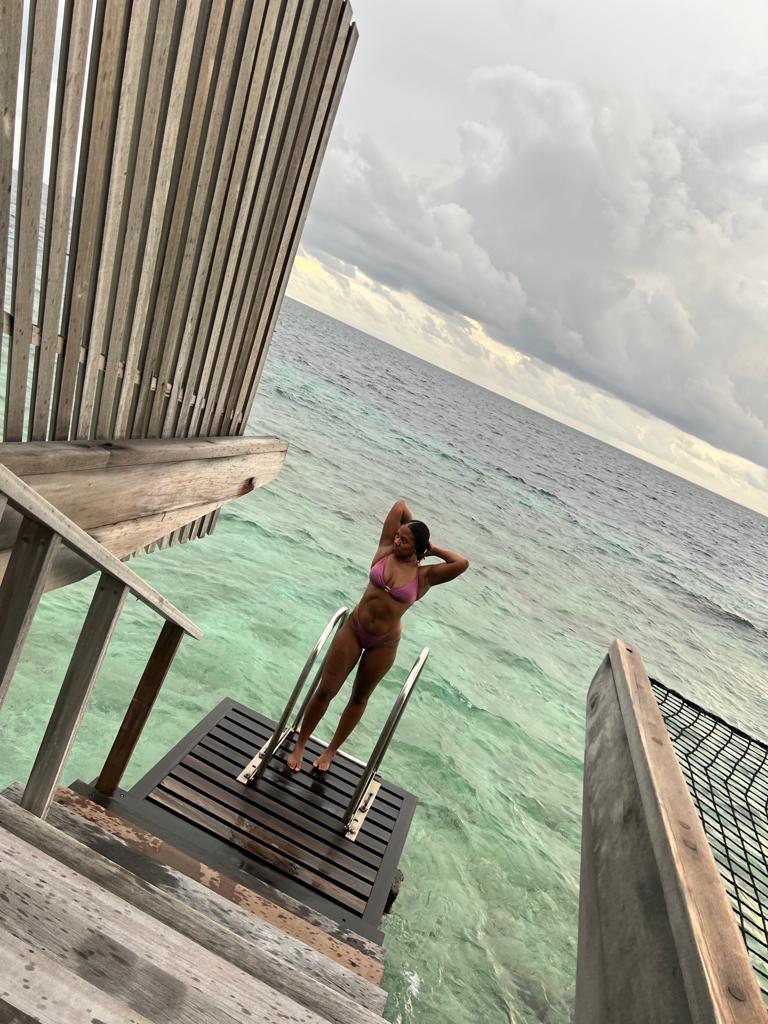
Overwater villa/St Regis Maldives
It’s something I think that’s calming about those clear waters, that does something for our spirits. I visited Zanzibar a year ago and was able to work with a local organization called the Panje Project. I arranged a day-long in-service training for their Master Instructors. The training did not take place in the pool, it was going to take place right in the Ocean. I was very anxious about this initially. But once I was in the Ocean, I realized that the fear wasn’t just mine. It was ancestral. And yet, the experience was incredibly liberating. It wasn’t just about swimming; it was about healing—for me and for everyone there.
When I say that that day was probably the most freeing feeling. Sitting in the Indian Ocean and seeing my fellow brothers and sisters at EASE in the water was a balm for my spirit. I wonder how many more of us would benefit from experiencing this and then bringing this newfound knowledge back to US
Since I’ve moved to Bali, I’ve noticed in the groups I belong to, there’s lots of requests for swimming related activities or lessons. I recently taught two sisters. Like many adult swimmers, their last occurrence with water was extremely traumatic. They were anxious, even timid. But something about the island, jumping out of their comfort zone, flying several thousand miles away from home, made them lose inhibition.
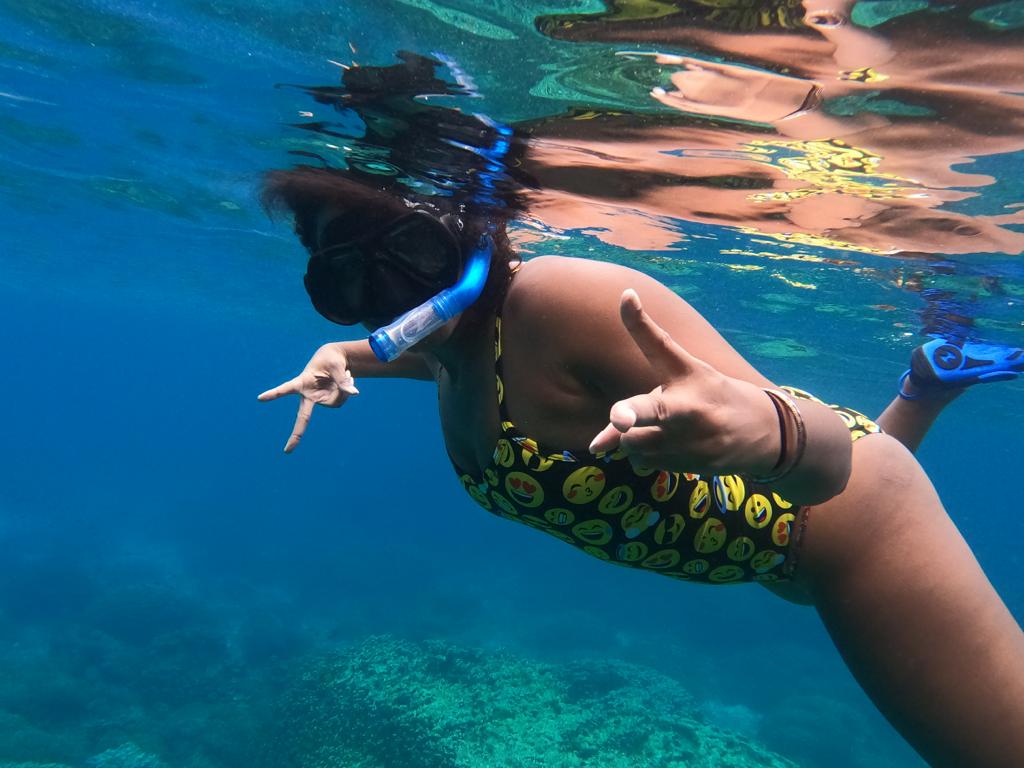
Snorkeling in Daymaniyat Island Oman
Over the course of the week we worked on stripping all of those fears. We meditated, we did breathwork. Somewhere during the week, I realized that what I was doing and assisting with was monumental. We were quite literally breaking off the chains one by one with each swim lesson. It eventually became less about swimming and more about bonding. We spoke on life, family, and problems. The water which was a terrible beast, now became a place where we laughed, and received validation.
Water, for so long a source of fear and pain, can also be a space for joy, healing, and liberation. We, as Black people, deserve that freedom. We deserve to be baptized by the water—not as a means of survival, but as a gateway to healing. And we can find it—in the Caribbean, in Zanzibar, in Bali, and in every place where the water calls us to let go, to dive in, and to be free.

For many college students, tuition isn’t the only expense causing stress. Rent, groceries, books, transportation, and everyday costs can add up quickly....
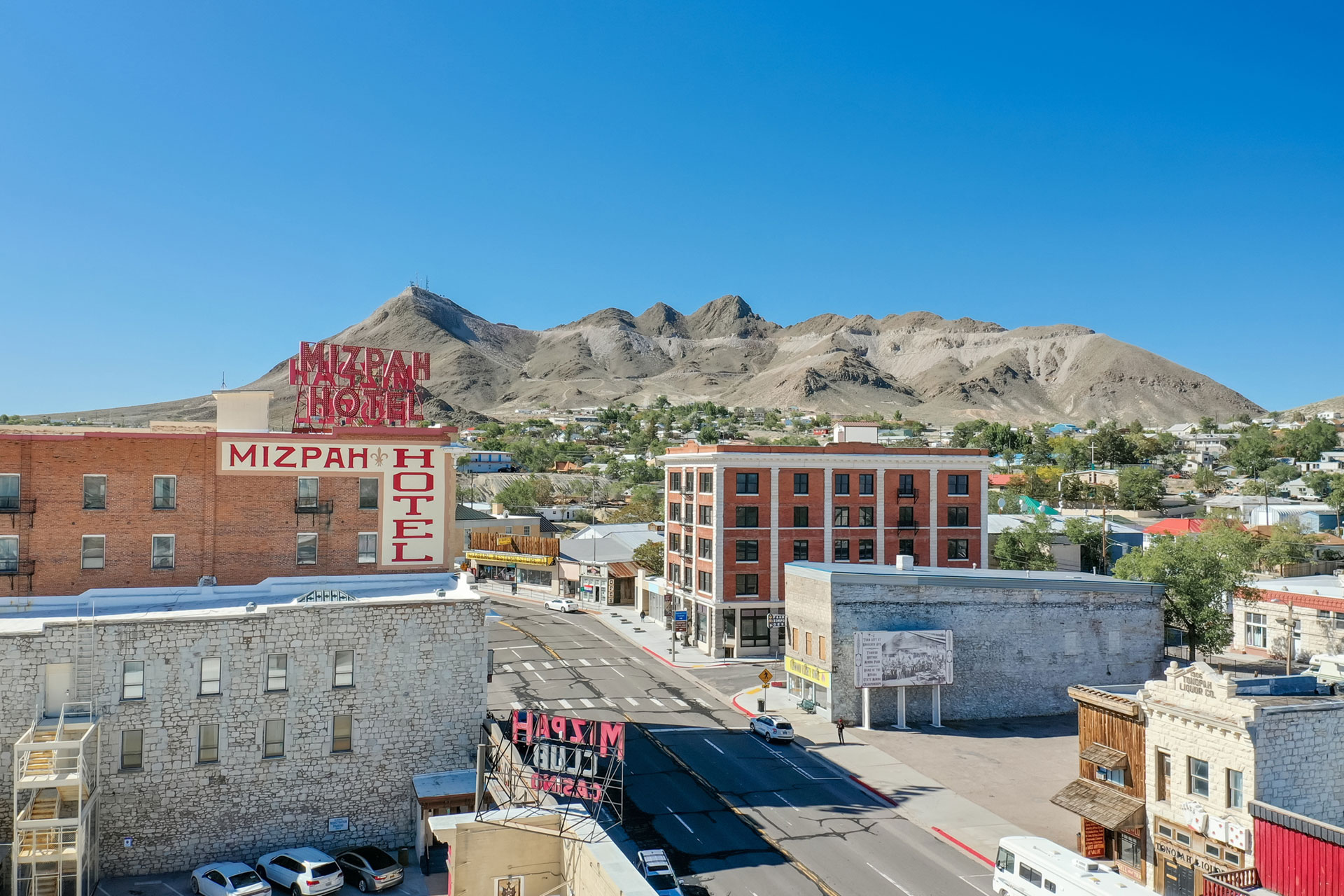
Throughout rural America, small business owners are facing a quiet threat: losing their last local bank. In rural towns, from North Carolina to Nevada’s frontier communities, a single local bank can mean the difference between convenient financial...
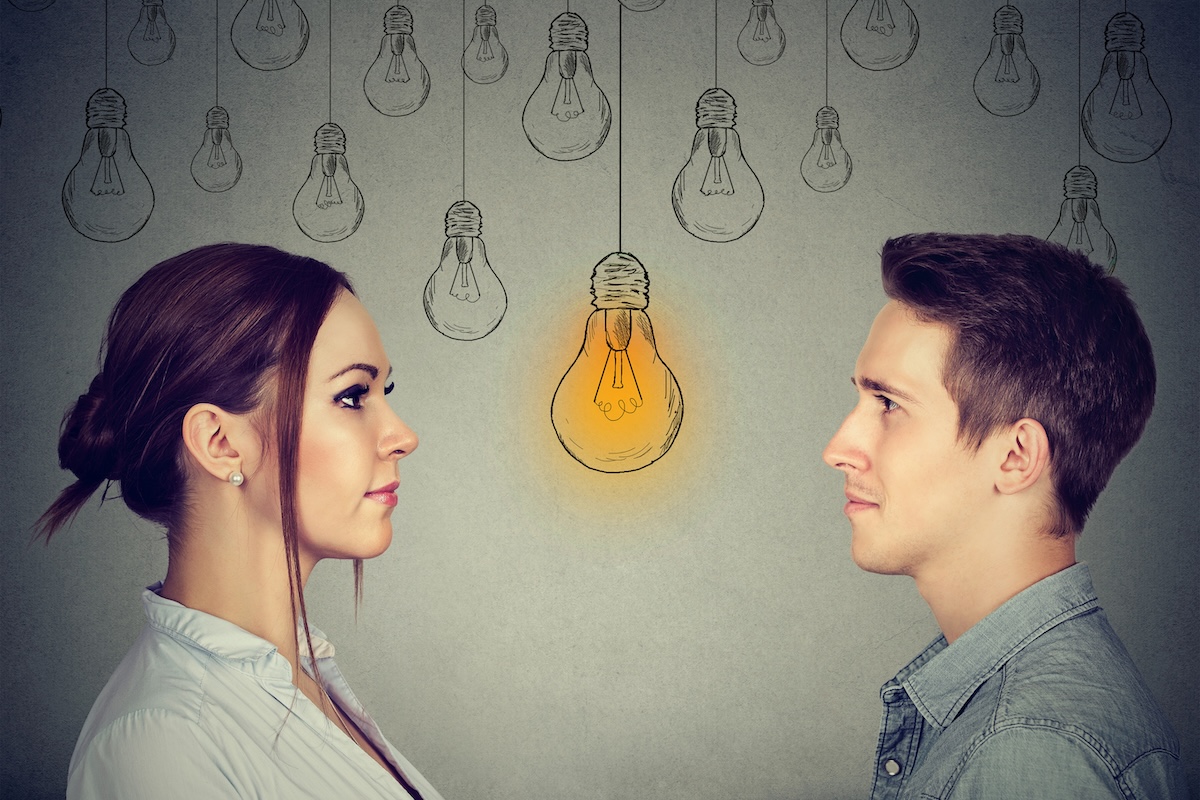
In 1970, men earned nearly six doctoral degrees for every one earned by a woman. Today, that ratio has flipped....